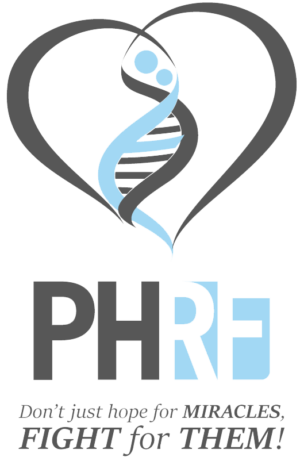MAHER LAB IDENTIFIES POTENTIAL DRUG TARGETS FOR PITT HOPKINS
Study Identifies Potential Treatment for Autism Spectrum Disorder
Lieber Institute investigators designed an innovative methodology that identifies the first potential treatment for Pitt-Hopkins syndrome, a type of autism.
10 March 2016

BALTIMORE—March 10, 2016—The Lieber Institute for Brain Development (LIBD) released today the results of an innovative study that may lead to a clinical trial within a relatively short time for the treatment of Pitt-Hopkins syndrome (PTHS), a type of autism spectrum disorder.
There are currently no medications available to treat the cognitive and behavioral deficits associated with PTHS, which is characterized by intellectual disability, developmental delays and communication deficits. The Lieber Institute’s study is the first to identify specific proteins that represent potential therapeutic targets for Pitt-Hopkins and possibly other neuropsychiatric disorders, including other forms of autism and schizophrenia. Lieber Institute scientists show that by modifying these proteins, abnormalities related to the Pitt-Hopkins gene are reversed.
The study, published today in the journal Neuron, is titled “Psychiatric Risk Gene Transcription 4 Regulates the Intrinsic Excitability of Prefrontal Neurons via Repression of SCN10a and KCNQ1.” The paper can be found online here http://www.cell.com/
In contrast to prior strategies for finding treatments for autism, which have mainly focused on trying to correct the genetic abnormality itself, Lieber Institute scientists took a novel approach to understand the mechanism responsible for the cognitive and behavioral deficits. In genetically modified rats, they identified abnormalities in brain cell function after birth that are potentially responsible for the cognitive and social abnormalities. Specifically, they found an ion channel protein not normally present in the brain to be overly active, disrupting nerve cell function. This particular ion channel is normally controlled by Transcription 4 (TCF4), the gene that is mutated in Pitt-Hopkins. When they administered drugs targeting this and another disrupted ion channel, or when they used genetic editing approaches to render the channels less active, the abnormal brain cells were restored to normal.
“These findings are a significant step toward developing effective treatments for Pitt-Hopkins and potentially other autism spectrum disorders,” said Brady J. Maher, Ph.D., the study’s lead investigator. “The results suggest that giving a drug that will block these ion channels in patients with Pitt-Hopkins could make their cells behave normally again.”
Pitt-Hopkins is caused by mutations of the gene TCF4. Because it is a monogenic disorder (caused by a single gene), scientists can effectively identify the underlying biology of the disorder in animal and cell models. Researchers at the Lieber Institute used CRISPR/Cas9 gene editing technology and short hairpin RNA to specifically target TCF4 function in an in vivo rodent model of Pitt-Hopkins. They also developed a novel technique called iTRAP to identify the culprit ion channels in the central nervous system, specifically SCN10a and KCNQ1, as candidate genes for targeted therapy.
“We are strongly encouraged by the results of this study and are moving forward with a series of experiments designed to further characterize the therapeutic target that we have identified at the cellular level,” said LIBD Director and CEO Daniel R. Weinberger, M.D. “We are exploring approaches for a therapeutic trial in individuals with this condition. Drugs that block these channels already exist, so this is a rare opportunity to go from the laboratory to the clinic in relatively short order.”
This work was supported by the Lieber Institute as well as NIH/NIMH grants (K01MH086050 and R56MH104593), a NARSAD Young Investigator Grant and a Pitt-Hopkins Research Foundation Grant awarded to Maher, the study’s lead investigator.
About the Lieber Institute for Brain Development
The mission of the Lieber Institute for Brain Development and the Maltz Research Laboratories is to translate the understanding of basic genetic and molecular mechanisms of schizophrenia and related developmental brain disorders into clinical advances that change the lives of affected individuals. LIBD is an independent, not-for-profit 501(c)(3) organization and a Maryland tax-exempt medical research institute affiliated with the Johns Hopkins University School of Medicine.
###
Media Contacts
Amy Snow Landa or Aaron Blank, The Fearey Group for the Lieber Institute
Another article from the Baltimore Sun: http://www.baltimoresun.com/health/blog/bs-hs-autism-treatment-20160310-story.html


